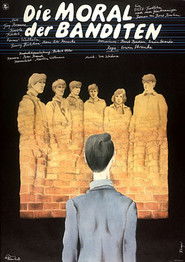detail profile sina fiedler engel
Peran Yang Di Mainkan Sina Fiedler-Engel
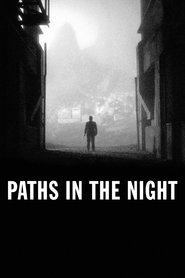 Set against the backdrop of postunification...
Set against the backdrop of postunification...Paths in the Night 1999
Set against the backdrop of post-unification Germany, the film explores the breakdown of relations in a decaying social structure.
 18year old Georg and 13year old...
18year old Georg and 13year old...Forbidden Love 1990
18-year old Georg and 13-year old Barbara have been playing together as children. Play becomes love later, which leads to a catastrophe , as their parents are hostile leading to file a report to the court, as Barbara is still under age.
 In the wintry Baltics a century...
In the wintry Baltics a century...Die Galgenbrücke 1989
In the wintry Baltics, a century is drawing to a close and with it the era of the old Junker aristocracy. Pastor Erwin Wenger falls in love with the beautiful Baroness von Werland. This love plunges him into serious conflicts of conscience, especially as he does not appear to be the young woman's only admirer. Her husband, the ailing Baron von Werland, seeks to be close to the pastor. And it is not only the baron's health and the old castle that increasingly deteriorate, but the man of God's moral stability also begins to waver ...
 At the beginning of the 50s...
At the beginning of the 50s...Bear Ye One Another's Burden... 1988
At the beginning of the 50s, two extremely disparate men meet in a private sanatorium for consumptives: an officer in the People's Police, Josef Heiliger; and a young Protestant curate, Hubertus Koschenz. On account of their consumption, they have to share a room. Initially, this is the only thing they have in common.
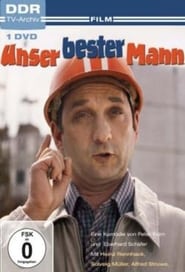 The main character Otto the best...
The main character Otto the best...Our Best Man 1983
The main character Otto, the "best man", is a copy of the illustrious Mister Bean. He takes on an apprenticeship as a building-worker, which makes him a member of a building brigade. At the same time Otto tries to start a love affair, which he handles even clumsier. Never the less Otto makes progress with the lady in question, a single mother, who apparently doesn't mind. Actually he wanted her sister, but a retired Leninist party member changes his mind. This gives him the courage to persevere in his work, albeit with the helping hand of the obligatory retired party member. And behold, in the end Otto invents a new method of building, which saves the brigade many hours of work.
 On a forest road in the...
On a forest road in the...Exploring the Brandenburg Marche 1982
On a forest road in the Brandenburg March, village teacher Potsch accidentally encounters the distinguished Professor Menzel, who got stuck there in his car. In the conversation that ensues, Menzel and Pötsch quickly discover that they both are great admirers of the early 19th-century writer Max von Schwedenow who was born in the area.
 Inge Herold is in her midthirties...
Inge Herold is in her midthirties...Apprehension 1982
Inge Herold is in her mid-thirties. She is divorced and lives with her 15-year-old son. She works as a psychologist and social worker and is involved with a married man. Suddenly, Inge finds out she may have breast cancer, which would mean an operation the very next day. The 24 hours before the planned surgery puts her under enormous psychological pressure and she begins to reevaluate her life. With heightened awareness of matters of everyday life, she realizes that what she previously considered meaningful, was actually void of any real meaning.
 South America at the beginning of...
South America at the beginning of...Die Kolonie 1981
South America at the beginning of the 1980s. A man is on the run from a group of armed pursuers. He does not manage to escape and is shot down mercilessly. Young Maria witnesses the cruel event and asks her friend, the journalist Oswaldo, to find out about the backgrounds of this case. The police also start to investigate the case and find out that a mysterious German farm is involved in the shooting. But the farm lies in an exterritorial area, thus the police officers cannot investigate any further.
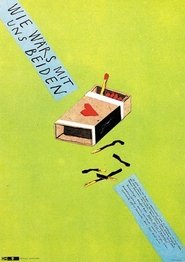 In three episodes about six people...
In three episodes about six people...Wie wär's mit uns beiden 1981
In three episodes about six people, the film takes on the topics of relationships, difficult social engagements , and love in the German Democratic Republic.
 Johann Paul Schroth is a 20yearold...
Johann Paul Schroth is a 20yearold...Chirurgus Johann Paul Schroth 1981
Johann Paul Schroth is a 20-year-old barber's apprentice who breaks out of the barber-surgeon's trade. Schroth wants to realize his dream, which is to put aside the beard knife and use the scalpel in such a way that people are healed and not tortured...
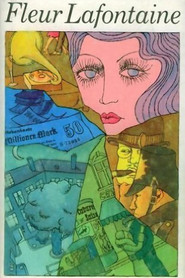 Berlin 1948 Paralyzed and robbed of her...
Berlin 1948 Paralyzed and robbed of her...Fleur Lafontaine 1978
Berlin, 1948: Paralyzed and robbed of her memory, Fleur regains consciousness after a serious fall. The doctor treating her recognizes that her problem is of a psychological nature and encourages her to face up to her past. The daughter of a brothel owner is reluctant to look back: on a hapless childhood, her relationships with bon vivant Dr. Goldner and the politically committed locksmith Philipp (Hilmar Thate) as well as the difficult period of fascism... This exciting journey into the German past is based on Dinah Nelken's novel "Das angstvolle Heldenleben einer gewissen Fleur Lafontaine".
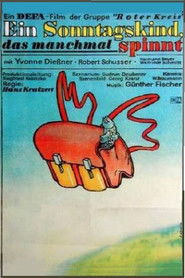 10yearold Kathy Montag moves to a...
10yearold Kathy Montag moves to a...Ein Sonntagskind, das manchmal spinnt 1978
10-year-old Kathy Montag moves to a big city in Brandenburg. Before that, she lived in the Harz Mountains together with her father Peter. Her mother has died a few years ago. The girl finds her new home very exciting, and since Kathy takes an interest in everything she encounters, she keeps finding herself in peculiar situations such as a brigade party or the shooting of a historical epic movie. Her classmates consider her an oddball and even her father is unhappy about his daughter′s development.
 Bruno Kappel is an established attorney...
Bruno Kappel is an established attorney...Brandstellen 1978
Bruno Kappel is an established attorney in Hamburg who, in earlier times, belonged to an anarchistic student circle. His former girlfriend Karin Kunze is still a member of this scene. Bruno, who still has left-wing beliefs, becomes her attorney. But when Karin gets into a shootout with the police, she has to go into hiding. The prosecuting attorney Baller has also been a former member of the anarchistic scene. He does not want his past to be revealed by Karin′s apprehension and prosecution. Thus, he asks Kappel to find Karin and sneak her out to a foreign country.
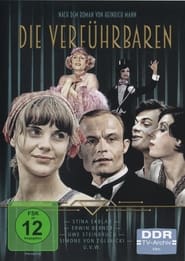 1929 Marie Lehning a farm worker from...
1929 Marie Lehning a farm worker from...Die Verführbaren 1977
1929: Marie Lehning, a farm worker from Warmsdorf on the Baltic Sea, falls in love with the fisherman's son Mingo. Both complete an apprenticeship in Lübeck. Marie wants to become a seamstress, Mingo a carpenter. After their first night of love, they swear eternal fidelity. But Marie has to return to the village, her mother is ill and her siblings are unprovided for. She starts working as a maid on a farm. Unexpectedly, she meets the young Kurt Meier from Berlin, whom she knows from before.
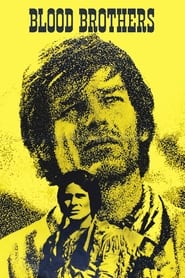 In 1864 American soldiers massacre a Cheyenne...
In 1864 American soldiers massacre a Cheyenne...Blood Brothers 1975
In 1864, American soldiers massacre a Cheyenne village at Sand Creek. Disgusted by the massacre, Harmonika, one of the soldiers, deserts the army and is captured by the Indians. At first, the Cheyenne hold him responsible for the murder of the wife and the son of their chief Grauer Esel, but soon Harmonika obtains the tribe′s confidence.
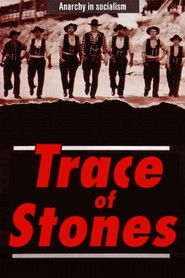 Bad planning and shortages prevail on...
Bad planning and shortages prevail on...Trace of Stones 1966
Bad planning and shortages prevail on an East German construction site. Foreman Hannes Balla uses unconventional methods to overcome the problems. New Socialist Unity Party secretary Werner Horrath is charged with bringing the rough-and-ready builder crew into line. The task seems doomed to fail as the two men compete for the affections of young engineer Kati Klee. But when she gets pregnant by married man Horrath, he is in danger of being expelled from the party, and Balla takes his side...
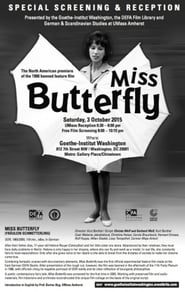 After the death of their father 18...
After the death of their father 18...Miss Butterfly 1966
After the death of their father, 18-year-old Helene Raupe (“coccoon”) and her younger sister Asta come under the guardianship of the youth welfare office in East Berlin. Helene fails miserably as a fishmonger, fashion assistant and bus conductor, all jobs ordained for her by the authorities. The young woman really only “emerges” in her fantasies, where she can escape from her dull, normal life.
 Was it an act of sabotage...
Was it an act of sabotage...Der Frühling braucht Zeit 1965
Was it an act of sabotage or willful negligence? The non-party engineer Heinz Solter is suddenly arrested and accused of approving a defective pipeline that caused a half million loss to his company. At first, the case seems clear-cut for the state prosecutor, but when he probes deeper, he discovers that Solter had acted against his better judgment due to the pressure from his career-driven and authoritarian boss.

 The wrenching story of a woman...
The wrenching story of a woman...